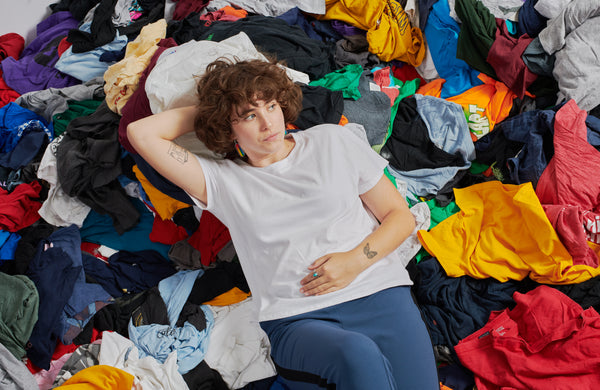The music industry needs eco-conscious merch
Musicians and promoters are refining sustainability efforts in the wake of recent reports detailing massive carbon emissions and waste generated by tours and festivals (1).
Most of the industry’s sustainability strategies being developed focus on obvious contributors like travel, single-use plastics, and lack of recycling and composting. What’s missing from these plans is a comprehensive approach to sustainable merchandising.
We believe artist merch can fit into the music industry’s sustainability push. Learn how Everywhere is making this a reality through our circular approach to apparel.
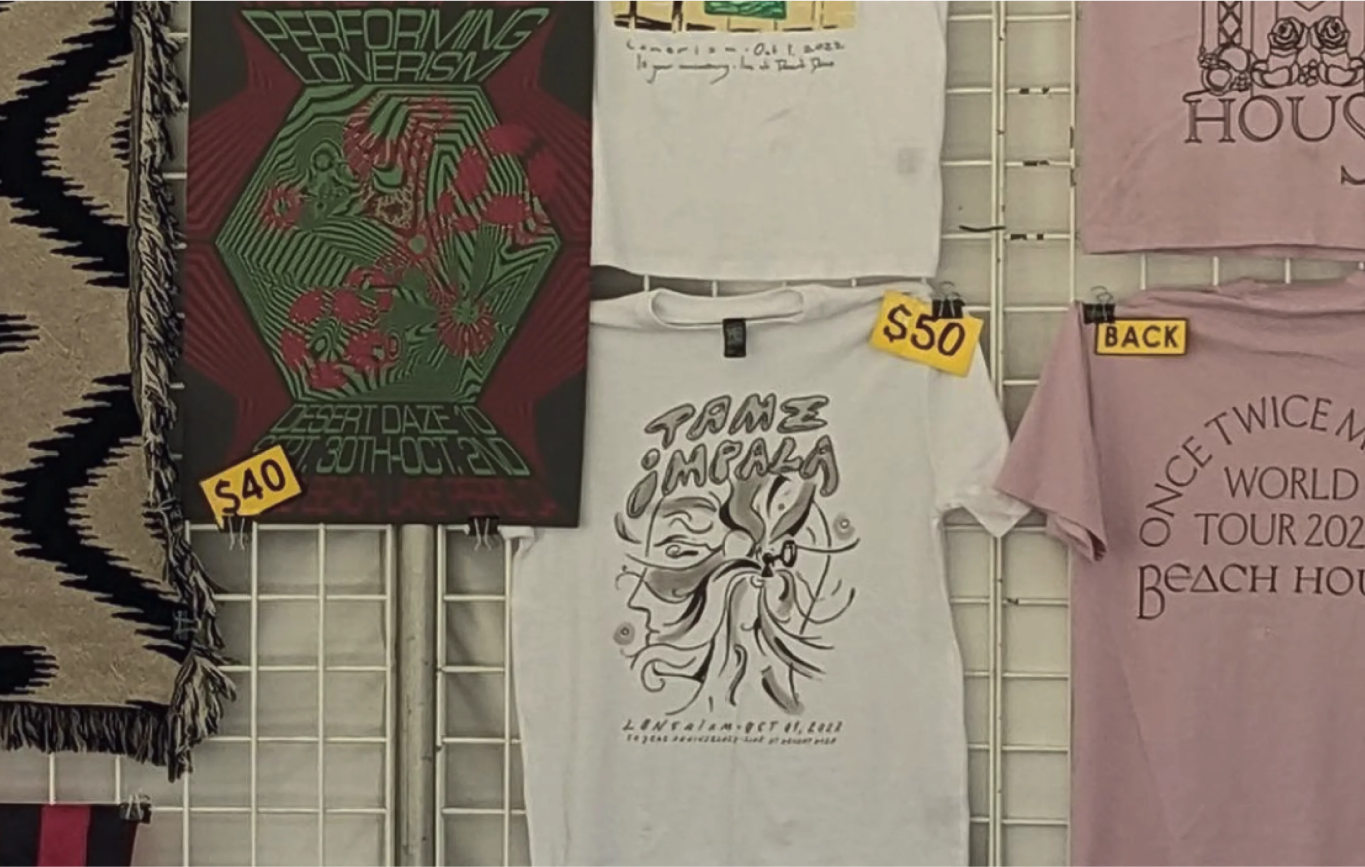
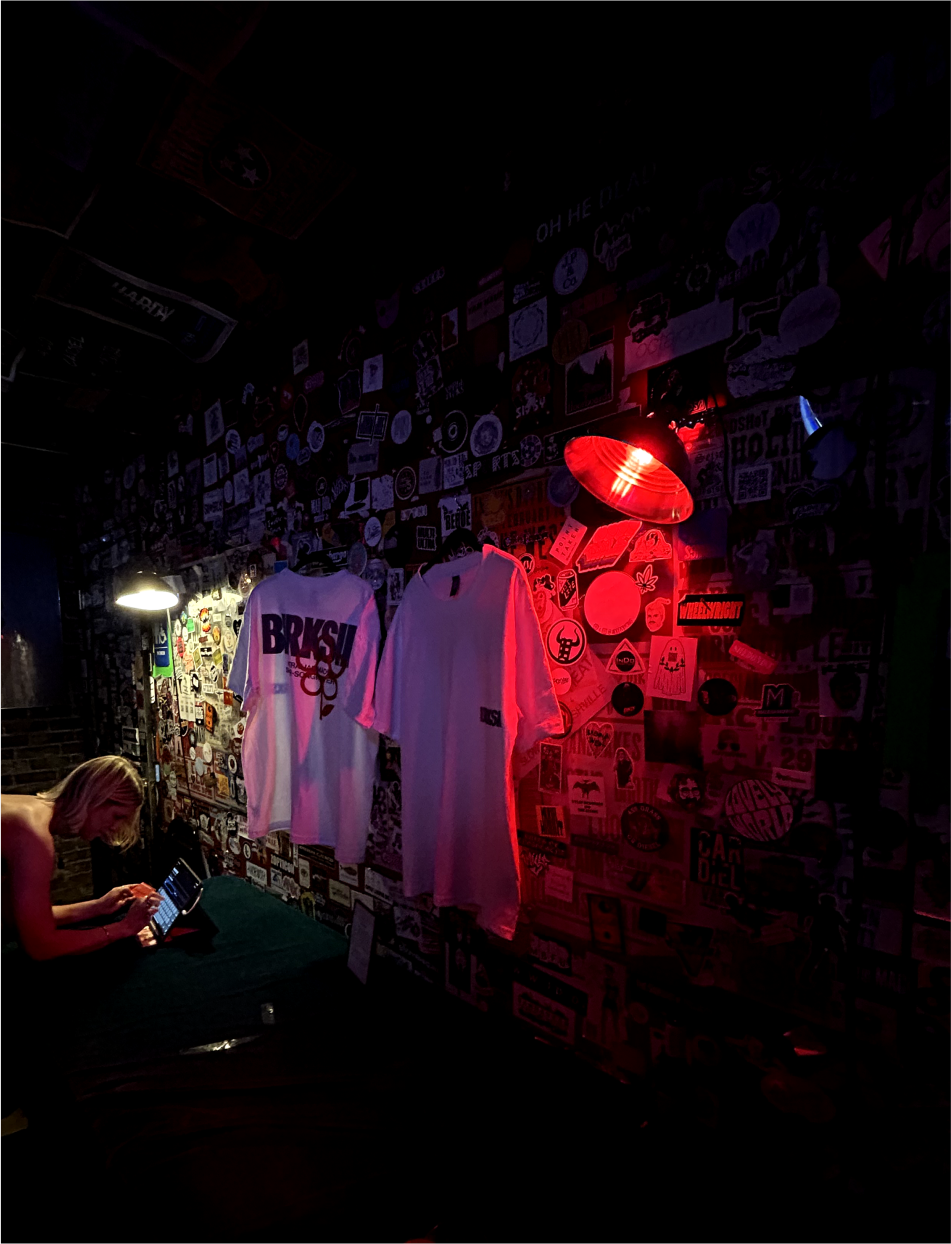
Why Artist Merch is Here to Stay
Merch is an essential part of music’s ecosystem. For fans, artist merch is more than a random shirt on the pile, it’s an emotional connection to an artist and the music they make. It’s an embodied memory that acts as a conduit not just to the music but a sense of community, and does so in a way that few objects can.
For musicians, artist merch has become essential to making a livelihood in the industry. Concert memorabilia has grown into a multibillion-dollar industry, often making up a significant portion of an artist's revenue—usually around 70 percent according in industry experts (2).
As a symptom of streaming’s ascendance, apparel and merch drive more sales than albums. Today, artists are paid less per stream than ever before, so in many cases the sale of one t-shirt can generate the same amount of revenue as tens of thousands of streams (3).
Merch is an integral part of the music industry, and doing away with it is not an option. If anything, there’s going to be more of it. The artists we work with rely on merch, but are looking for solutions to ecological problems created by merch production.
More merch means more opportunities for revenue, but it also means more carbon emissions, water usage, and unsold apparel that will eventually turn into landfill waste.
The Environmental Impacts of Music Merchandising
Artist merch can play a major role in the carbon footprint of a tour. In the case of indie group We Invented Paris’ “Rocket Spaceship Tour” merchandising accounted for 11% of total carbon emissions, or 3.6 tons of CO2 (4).
Unsold merch in the forms of deadstock and overstock apparel is difficult for bands to manage sustainably if they’re trying to divert waste from the landfill. We primarily hear artists stuck between equally unsustainable choices: donation, warehousing, or sending unsold artist merch to landfills.
Donating deadstock and overstock artist merch might seem like a viable option, but the reality is that donation systems are overloaded. Generally, there's an 80%+ chance that unsold tour merchandise apparel will end up in a landfill and stay there for years (5). Only 10-30% of donated clothing actually gets sold in retail stores (6).
The rest is often sold to developing countries primarily in the Global South, where the massive volume of textile waste overloads their recycling and donation systems. Ultimately, a large percentage of these clothes still make their way to landfills and incinerators.
Warehousing waste and deadstock merch is financially and environmentally inefficient. Electricity for lights and climate control create additional carbon emissions, and additional costs are required to store the very stuff that’s keeping bands financially solvent.
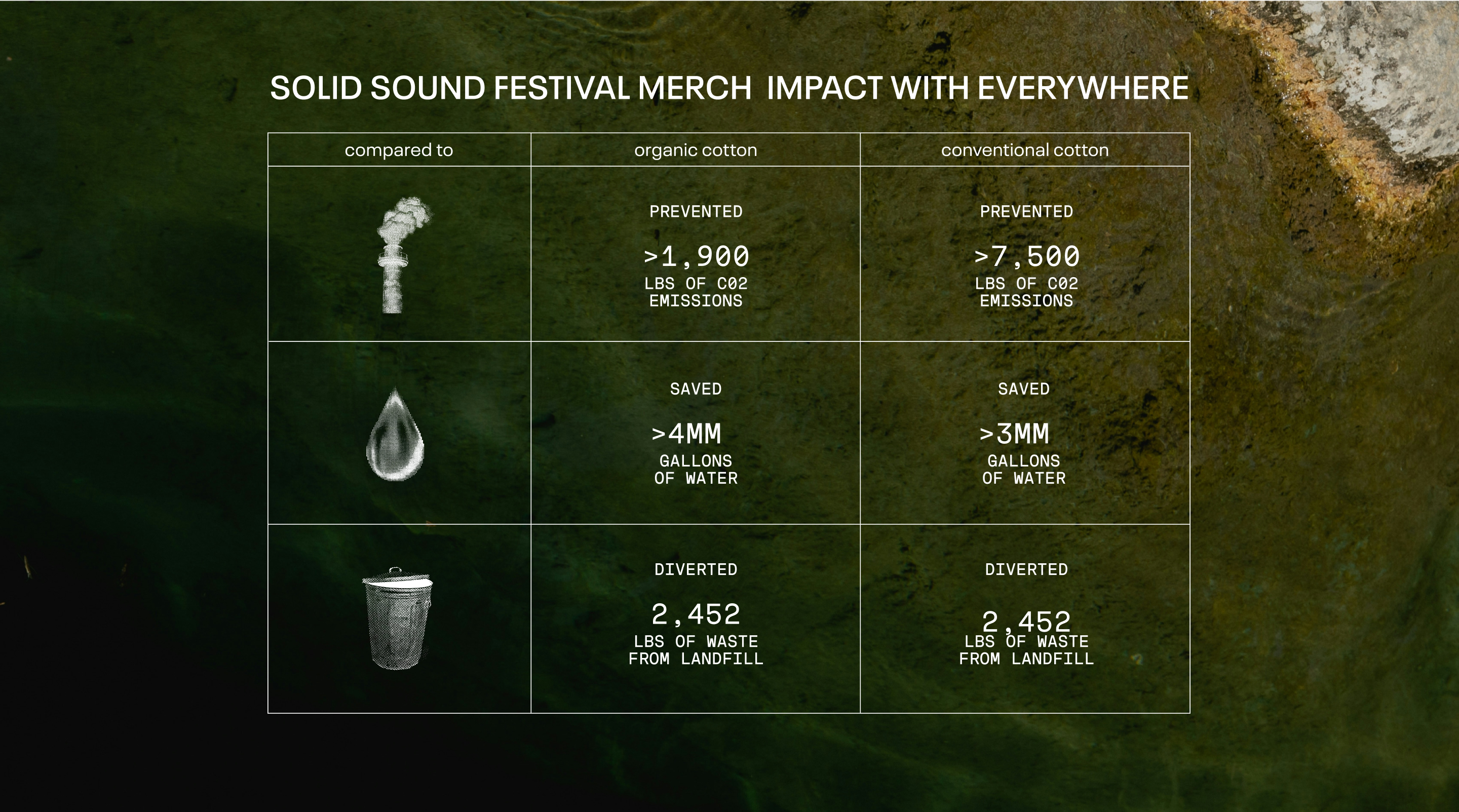
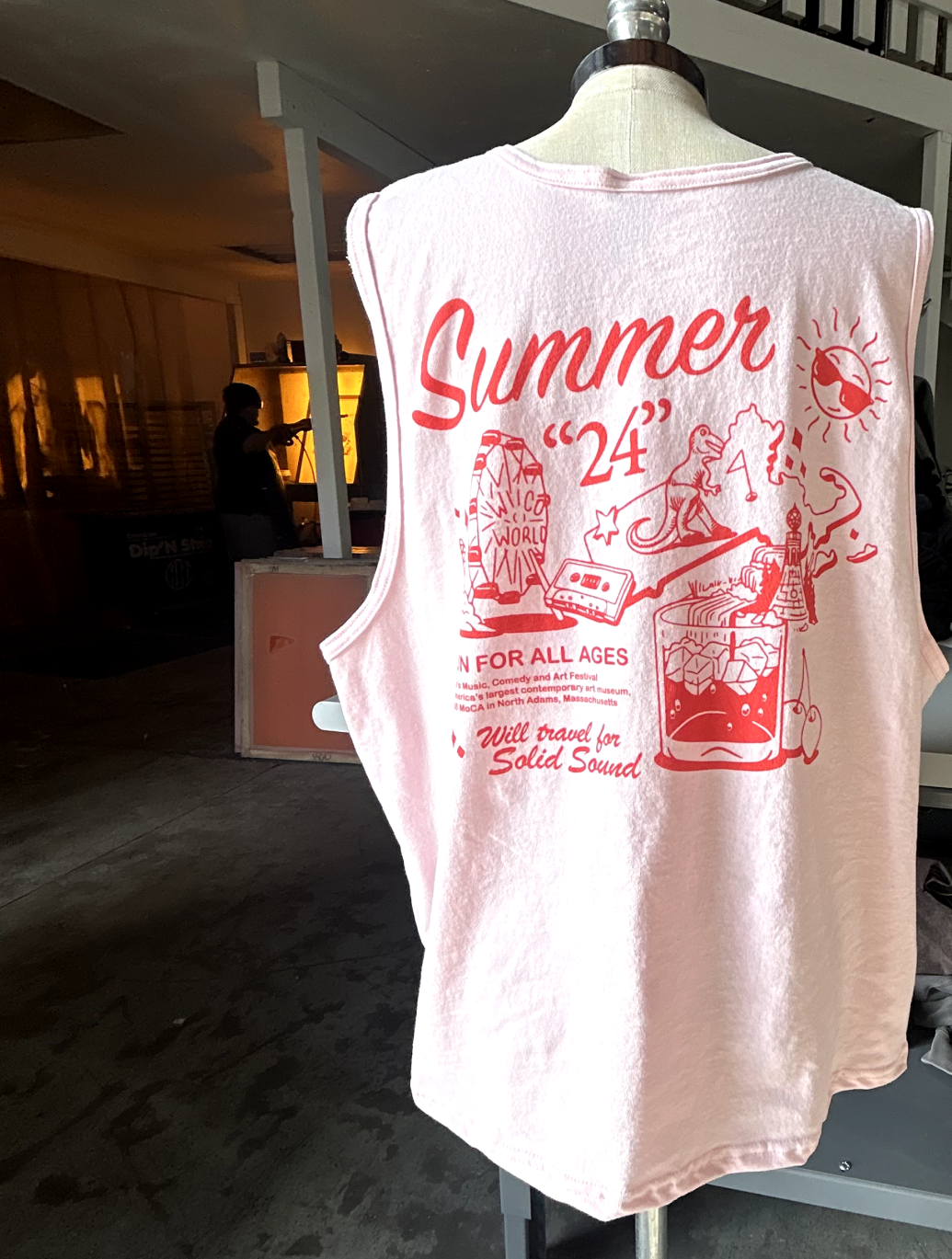
Circular Merch Creates a More Sustainable Music Industry
Everywhere Apparel is dedicated to finding circular solutions to textile waste in the music industry. Artists choose our eco-conscious recycled blanks because they save water, offset carbon emissions, and reduce global textile waste.
Our circular approach to overstock and deadstock apparel helps bands manage their merchandise’s end of life. Using our closed loop processes and material science innovations, we’re able to transform unsold apparel into CirCot™, our maximally sustainable cotton fiber.
From there, we can create future merchandise in the form of 100% recycled t-shirts and customizable blank apparel. We also facilitate merch recycling programs to accelerate the sustainability efforts of artists, managers, and labels.
For artists looking to improve their sustainability profile, purchasing Everywhere wholesale blank garments is a seamless solution. By embracing our circular approach to recycled apparel, artists can significantly reduce the environmental impact of their tour merchandise and contribute to a greener music industry.
If you’re in a band, run a label, or manage artists who want to accelerate systemic change in the music industry, work with us to help create a more sustainable future.
Sources
- New York Times. Can Flashy Music Festivals Go Green?
- Resident Advisor. Music Merchandise Keeps Artists Afloat. But How Does It Work?
- Resident Advisor. Music Merchandise Keeps Artists Afloat. But How Does It Work?
- Green Touring Network. Green Touring Guide: A guide for musicians, agents, tour managers, promoters, venues, and booking agencies.
- United States Environmental Protection Agency. Textiles: Material-Specific Data.
- GQ. What Really Happens to the Clothes You Donate.
